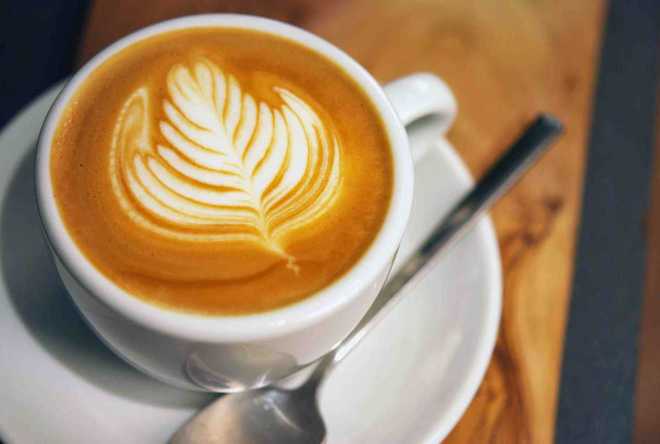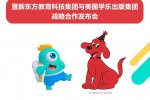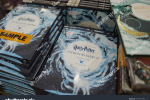雙語閱讀:關愛兒童 英格蘭禁能量飲料韓國禁咖啡

Many adults rely on the added jolt of caffeine to get them through the day. But that’s the last thing kids need, according to the governments of England and South Korea.
很多成年人依賴咖啡因熬過一整天,但英格蘭和韓國政府認爲,孩子們根本不需要這些。
?England woke up to the news that the government is preparing to ban the sale of energy drinks like Red Bull to children amid growing concerns about the negative health impacts of the high-caffeine, high-sugar drinks.
8月30日,英格蘭政府宣佈將禁止向兒童出售紅牛等能量飲料。越來越多的人擔心高咖啡因和高糖飲料會損害兒童健康。
The proposed ban only applies to England, but Scotland, Wales and Northern Ireland can all follow suit if their administrations wish. In March, several major supermarket chains announced that they would ban the sale of energy drinks to children under 16.
該禁令僅在英格蘭地區適用,蘇格蘭、威爾士以及北愛爾蘭地區的政府如果願意,也可推行。今年3月,英國幾家大型連鎖超市宣佈禁止旗下超市向16歲以下青少年出售能量飲料。
Meanwhile, South Korea announced plans to ban the sale of coffee in schools by September 14. Korean authorities justified the ban by citing reports of children experiencing dizziness, heart palpitations, trouble sleeping, and nervousness after consuming caffeine.
另外,韓國也已宣佈,將於9月14日起禁止在學校銷售咖啡。韓國官方還援引報道稱,兒童在攝入咖啡因後會出現頭暈、心悸、失眠和緊張,以顯示這一禁令的正當性。
含糖又含咖啡因,對青少年健康不利
The principal justification for the ban is the high level of caffeine in the energy drinks, which has been linked to a string of health problems for children, including head and stomach aches, as well as hyperactivity and sleep problems.
這一禁令的主要理由是能量飲料中咖啡因含量高,與兒童的一系列健康問題有關,包括頭痛和胃痛,以及多動症和睡眠問題。
A 250ml can of Red Bull contains about 80mg of caffeine, roughly the same as a similarly sized cup of coffee, but three times the level of Coca-Cola. Monster Energy, which is often sold in larger cans of 500ml, contains 160mg of caffeine.
一罐250毫升的紅牛含有大約80毫克的咖啡因,大約相當於一杯同樣大小的咖啡,是可口可樂咖啡因含量的三倍。怪物能量通常以500毫升的大罐出售,含有160毫克的咖啡因。
Energy drinks often also have higher levels of sugar than soft drinks. According to government figures, sugared energy drinks have 60% more calories and 65% more sugar than normal soft drinks and sugar is one of the largest causes of obesity.
能量飲料的含糖量通常也比軟飲高。根據英國政府的數據,含糖的能量飲料比普通的軟飲料卡路里和糖分含量分別高出60%和65%,而糖是導致肥胖的最主要原因之一。
The teachers’ union NASUWT called last year for the sale of the drinks to under-16s to be banned by all retailers. Its national official for education, Darren Northcott, described the beverages as “legal highs” that helped to fuel bad behavior in schools.
去年,英國教師工會呼籲所有零售商禁止向16歲以下的未成年人出售此類飲料,該機構的教育負責人達倫-諾斯科特稱這些飲料是“合法的興奮劑”,助長了學校的不良行爲。
Caffeine is the most commonly used psychoactive substance in the world. It is classified as a stimulant drug for its ability to arouse the central nervous system. Research has identified a range of possible health benefits and risks for adults. But the consumption of caffeine is generally not recommended for kids. The American Academy of Pediatrics, for example, recommends that children avoid high-caffeine energy drinks altogether, stating that “caffeine and other stimulant substances contained in energy drinks have no place in the diet of children and adolescents.”
咖啡因是全球使用最廣泛的神經活性物質,由於能夠喚醒中樞神經系統,被歸類爲刺激性藥品。研究已經證實了咖啡因對成年人可能存在的多種健康益處和風險,但一般不建議兒童攝入咖啡因。例如,根據美國兒科協會的建議,兒童不應飲用所有的高咖啡因能量飲料,並稱“能量飲料中含有咖啡因和其他刺激性物質,兒童和青少年不應該攝入。”
In both England and South Korea, the bans are part of a wider campaign to encourage healthier eating habits, especially among children. South Korean officials have implemented a strategy to deal with rising obesity rates among students, including imposing restrictions on children’s access to energy drinks.?
在英格蘭和韓國,這一禁令也是在更大範圍鼓勵健康飲食習慣的舉措之一,特別是針對兒童。韓國已採取措施應對學生肥胖率上升的問題,其中包括限制兒童飲用能量飲料。
The English ban on energy drink sales to children is also part of the government’s childhood obesity strategy, since energy drinks, in addition to being high in caffeine, often contain a lot of sugar. Public officials have announced they are conducting a consultation to determine whether the purchasing restrictions will apply at the age of 16 or 18.
英格蘭禁止向兒童銷售能量飲料也是政府應對兒童肥胖問題策略的一部分,因爲能量飲料除了咖啡因含量高,通常還含有大量的糖分。英國公共官員已經宣佈,他們正就這一禁令是否適用於16或18歲的青少年展開諮詢。
The bans come in response to the reality that, despite strict labeling rules and public awareness campaigns, children are still consuming highly-caffeinated and sugary drinks.
儘管頒佈了嚴格的標識規則,並開展了公共教育活動,但兒童們仍在飲用高咖啡因和高糖飲料,因此英格蘭和韓國纔會出臺這樣的禁令。
Under current labeling rules in the UK, for example, any drink that contains over 150 milligrams of caffeine per liter (other than tea or coffee) is required to have a warning label stating that the drink isn’t recommended for children, or for pregnant or breastfeeding women. But, according to the government, more than two thirds of UK children aged 10-17, and nearly a quarter of those aged six to nine, are energy drink consumers.
按照英國目前的標識規則,每升飲料中咖啡因含量超過150毫升(茶和咖啡除外)都需貼上警告標識,表明不建議兒童、孕婦和哺乳期婦女飲用。但英國政府表示,超過三分之二的年齡在10到17歲之間的英國兒童,以及近四分之一的6到9歲之間的兒童都在飲用能量飲料。
In addition to limiting kids’ access to caffeine and energy drinks, the South Korean government has also banned TV commercials for fast food, sugary snacks and high-caffeine beverages during times when most children’s programs air. But after a drastic decline in early 2016, energy-drink sales in the country continued to rise in 2017.
除了限制兒童飲用咖啡因飲料和能量飲料,韓國政府還禁止在大多數兒童節目播出的時段播放快餐、甜食和高咖啡因飲料的電視廣告。但在2016年上半年銷量大減之後,韓國能量飲料的銷量在2017年繼續回升。
South Koreans drink an average of 181 cups of coffee a year, by far the most in Asia, according to market research firm Euromonitor. That is more than the 151 consumed per person in the UK but less than the average of 266 cups in the US.
根據歐睿國際市場調研公司的數據,韓國人平均每人每年喝181杯咖啡,這在亞洲是最多的。這比英國人每年人均飲用151杯要多,但低於美國266杯的人均水平。
Many students consume coffee or energy drinks to stay alert to study in an effort to excel in South Korea’s highly competitive and demanding education system.














